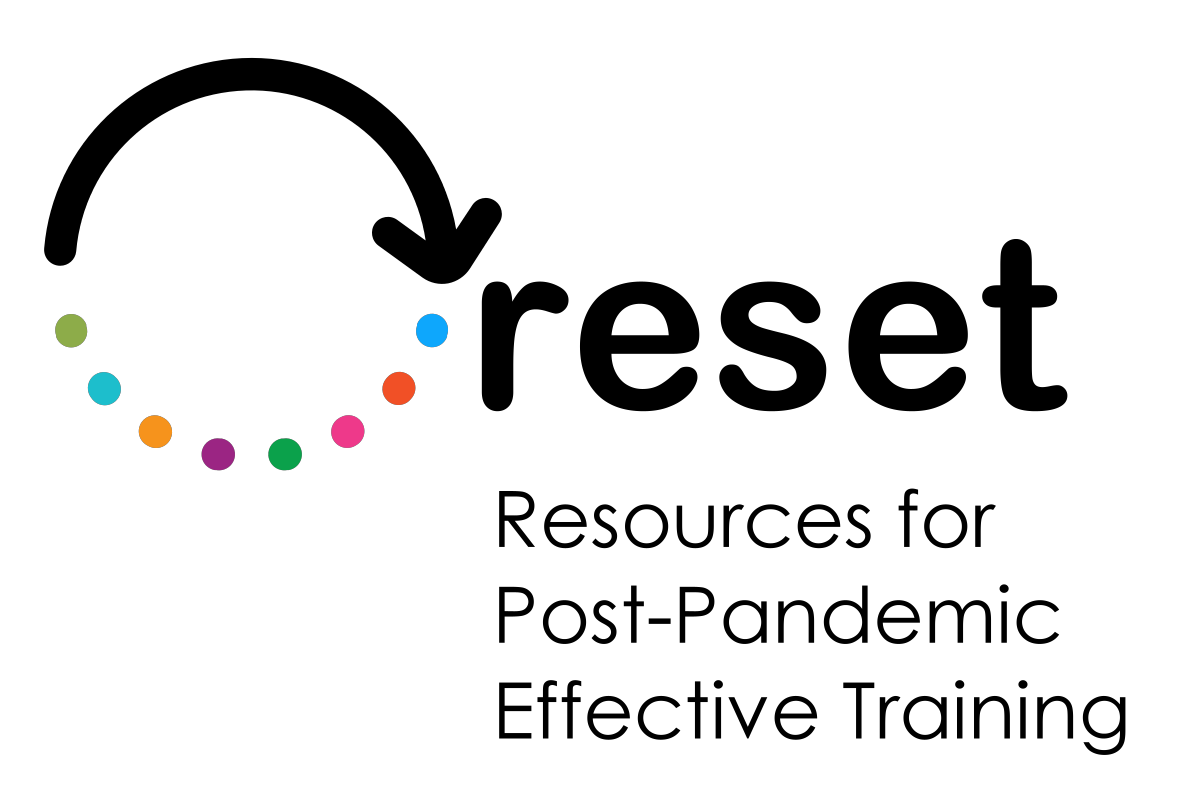Training

 Digital Marketing for VET provision
Digital Marketing for VET provision
The Internet is a great medium for promoting educational services in vocational training. It does not only allow us to make our educational offer known, but it also enables contact with potential customers and opens up new possibilities of digital marketing. In this course, you will learn how to implement these strategies and promote your educational services on the Internet.

 Classroom management: keeping the audience involved within the virtual classroom - Mind maps, the basics
Classroom management: keeping the audience involved within the virtual classroom - Mind maps, the basics
Organising ideas to discuss a topic is difficult, but even more challenging is planning, designing or making decisions by co-operating with several people: it takes technique and organisation. That is why various tools and procedures have been proposed over time: in this course we focus on mind maps. We figure out their characteristics and areas of use, and learn to distinguish them from concept maps, with which they are often confused.

 Classroom management: keeping the audience involved within the virtual classroom - Digital mind maps for professional collaboration
Classroom management: keeping the audience involved within the virtual classroom - Digital mind maps for professional collaboration
We understand the usefulness of digital mind maps, as opposed to manual ones, when the context is complex and requires freedom to rethink, reorganise, or share. Finally, we see how they can be used to facilitate and stimulate professional collaboration analysing three use cases.

 Analysis of digital resources and understanding of digital reliability
Analysis of digital resources and understanding of digital reliability
Teachers and educators of every order and degree are spoilt for choice in the number and nature of digital content they can propose to their students. In order to guarantee an impactful and pleasant learning experience to students, educators need to be able to select, re-adapt and manager the most suitable resource.

 Teamwork and collaborative digital classroom
Teamwork and collaborative digital classroom
The following training course for VET-operators takes on important methodological perspectives in creating a collaborative digital classroom. The training could be implied as a tool for both reflection and discussion on best practice and as an inspirational tool that can help facilitate implementation or improve current practice. The training course is based heavily on research results from other Erasmus+ Projects gained by NLP Aalborg/ Center for Unges Livsmestring and associate partners. Furthermore, the organizational experience of co-working digitally in several European and Danish forums especially during periods of Covid lockdown will be integrated. And not least the experience gained from the authors experience from working in media and communications as well as teaching media science and communication at university.

 Micro-Digital Credential for VET
Micro-Digital Credential for VET
The module will explain the concept of micro-credentials and give an overview about the current discussion surrounding them. It will show how they can be included in virtual VET and training, resulting in a timely, short update of knowledge in an accreditable form. Lastly, it invites learners to analyse the ways in which they can offer certified further training for pressing matters.

 Quality digital training for students with special needs
Quality digital training for students with special needs
Special needs refer to students who have physical, mental, or neurological disabilities. These students require educational support to succeed in school. This can include coaching and tutoring, special education services, and assistive technology. Tutoring is a type of educational support that involves one-on-one instruction with a tutor. This approach can be effective as it allows for a more individualized and focused approach to learning. To create a supportive learning environment, teachers can use visual aids, adapt materials, and use digital aids. For students with dyslexia, assistive technologies such as text-to-speech software and voice-recognition software can be used. Structured literacy instruction, multisensory instruction, accommodations, and collaboration with specialists can also be helpful. The process for identifying students with special educational needs and providing support varies by country and education system, but a student's individual needs are often the focus. Teachers, other school staff, and parents can provide valuable information about a student's strengths and weaknesses to help them succeed.

 Cybersecurity and Data Protection for VET Operators
Cybersecurity and Data Protection for VET Operators
The online world offers an unmeasurable number of resources and information that can help us both in our learning and in our daily lives. Nevertheless, it also has different dangers that can compromise our security. In this course, you will learn how to identify these cyberthreats, as well as how to avoid them, protecting your identity and ensuring your security on the Internet.

 DigComp for educators and organizations: Operational implications
DigComp for educators and organizations: Operational implications
The operative implications of DigComp for educators and organizations lies on the very motivations behind the existence of the framework and the official EU policy paper from which it originated. As of today, and since its official publication, the official DigComp’s literature counts several follow-up and spin-off documents that contributes to strengthen, update and further develop the EU resources for education and training of EU citizens on digital competences.

 Budgeting and resources mobilization for digital transformation
Budgeting and resources mobilization for digital transformation
Down to its core essentials, digitalization is about being more strategic and efficient in providing services and establishing a direct connection with the cohort of reference addressed by the organisation – and its most relevant STKHs and groups of interest. This helps organisation in being much more practical in understanding what they actually might need to transit into new IT-paradigms of education and training and that are coherent to organizations’ potentials and the audience potentially addressed by their offer.

 Optimizing digital VET - Digital tools and resources - Learning styles and Roles
Optimizing digital VET - Digital tools and resources - Learning styles and Roles
Learning styles refer to the different ways in which individuals absorb and process information, and the four core learning styles are visual, auditory, reading/writing, and kinesthetic. Facilitating and roles refer to the responsibilities of the instructor or facilitator in delivering the course and managing the learning process.

 Optimizing digital VET - Digital tools and resources - Platforms and Learning Objectives
Optimizing digital VET - Digital tools and resources - Platforms and Learning Objectives
A Learning Management System (LMS) is a digital platform that facilitates the delivery and organization of educational content. It is typically web-based and can include features such as e-portfolios, quizzes, assessment tools, and course management tools. Learning objectives are important as they provide a clear outline of what the learner should be able to do after completing a course. The digital learning environment includes all digital tools used by students, including computers, smartphones, software, and virtual reality. When choosing an LMS, it is important to consider the needs of the learners, the stakeholders affected by the decision, and the specific learning objectives and goals. Digital tools can be used to track student progress and provide feedback, which can help improve student outcomes.







